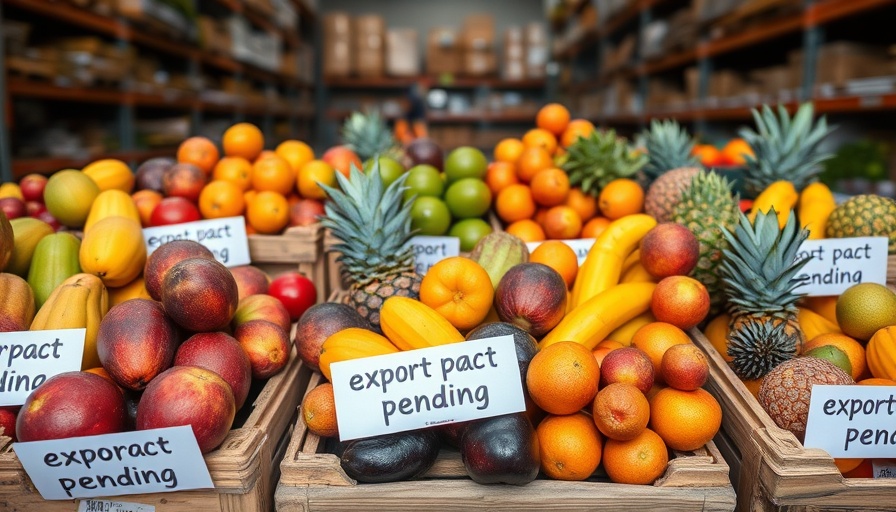
The Introduction of e@syFile™ Employer Version 8.0
As South Africa evolves within the digital landscape, the importance of up-to-date technology is paramount for businesses managing their taxation processes. On March 1, 2025, the South African Revenue Service (SARS) will implement the latest iteration of the e@syFile™ Employer software—version 8.0. This upgrade represents a significant enhancement aimed at improving the user experience for employers across the nation.
Understanding the Enhancements
Version 8.0 of e@syFile™ has been designed to offer a smoother and more intuitive filing experience. Previous versions of this software will officially be retired, making it essential for users to adapt to this upgrade to ensure seamless tax management. Key enhancements include improved processing speeds, better security features, and more accessible navigation tools that simplify compliance with tax obligations.
The Impetus for Upgrading
Upgrading to the latest version is not just a matter of complying with mandatory upgrades; it's an opportunity for businesses to enhance their operational efficiency. Employers can expect faster processing times and user-friendly interfaces that cut down on the time spent managing taxes. Furthermore, an upgrade is necessary to leverage enhanced security features that protect sensitive data. With rising digital threats, safeguarding personal and financial information must be a priority for businesses.
The Role of SARS in Tax Compliance
In today's complex economic climate, regulator bodies like SARS must facilitate compliance while ensuring that businesses are equipped with the tools necessary to navigate the tax landscape. This upgrade aligns with SARS’s commitment to improving the filing experience, thereby fostering greater levels of compliance among employers.
Global Context: The Importance of Digital Taxation Systems
As we consider the advancement of digital solutions worldwide, it is clear that primary tax authorities in several nations have embraced technology to streamline their processes. Countries employing sophisticated e-filing systems frequently experience increased compliance rates and reduced administrative burdens.
This global approach emphasizes the necessity for South Africa to modernize its tax procedures, offering a case study in the broader context of international standards. Through e@syFile™ Version 8.0, South Africa aims to establish a digital-first governance approach which will appeal to contemporary business practices.
Impact on Employers
For employers, the transition to version 8.0 holds multiple benefits. The new features are designed with the end-user in mind, allowing for easier navigation and simplified tax return preparations. As the regulations around compliance evolve, it becomes increasingly important for employers to stay ahead of changes that may impact their tax filings.
With simpler data integration capabilities, the burden on HR departments will become lighter, translating to increased productivity throughout the organization.
Potential Challenges and Considerations
While the new software brings many advantages, the transition period may pose challenges. Users who are accustomed to previous versions may face a learning curve as they become familiar with the new interface and features. It is essential for SARS to provide adequate support and resources during this transition to minimize disruption.
Furthermore, as technology evolves, cybersecurity remains a top concern. Employers must be vigilant and proactive in understanding the security frameworks that protect their sensitive financial data. An informed workforce regarding cybersecurity practices will be essential in mitigating risks associated with data breaches.
Future Directions: The Evolution of Tax Technology
Looking ahead, the landscape of tax technology continues to evolve rapidly. The integration of artificial intelligence and machine learning into tax filing systems presents exciting opportunities for increased efficiency and accuracy. As these technologies mature, they could revolutionize the way tax processes are managed, providing even greater ease of use for employers.
Thus, the launch of e@syFile™ Employer Version 8.0 is more than just an immediate upgrade; it is an essential step in a long-term evolution towards fully integrated tax technology solutions that meet the needs of modern businesses.
In conclusion, as we approach the implementation date of March 1, 2025, it is urged that employers prioritize the download and familiarization with the latest e@syFile™ Employer software. Staying informed about updates not only enhances operational efficiency but also ensures compliance with SARS regulations.
For further inquiries regarding e@syFile™ upgrades, compliance, or technical support, employers can reach out to SARS directly or consult their business partners.
 Add Row
Add Row  Add
Add 




Write A Comment